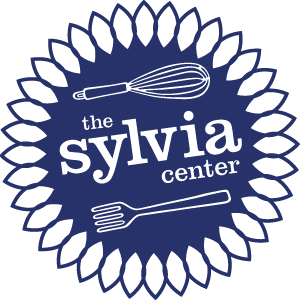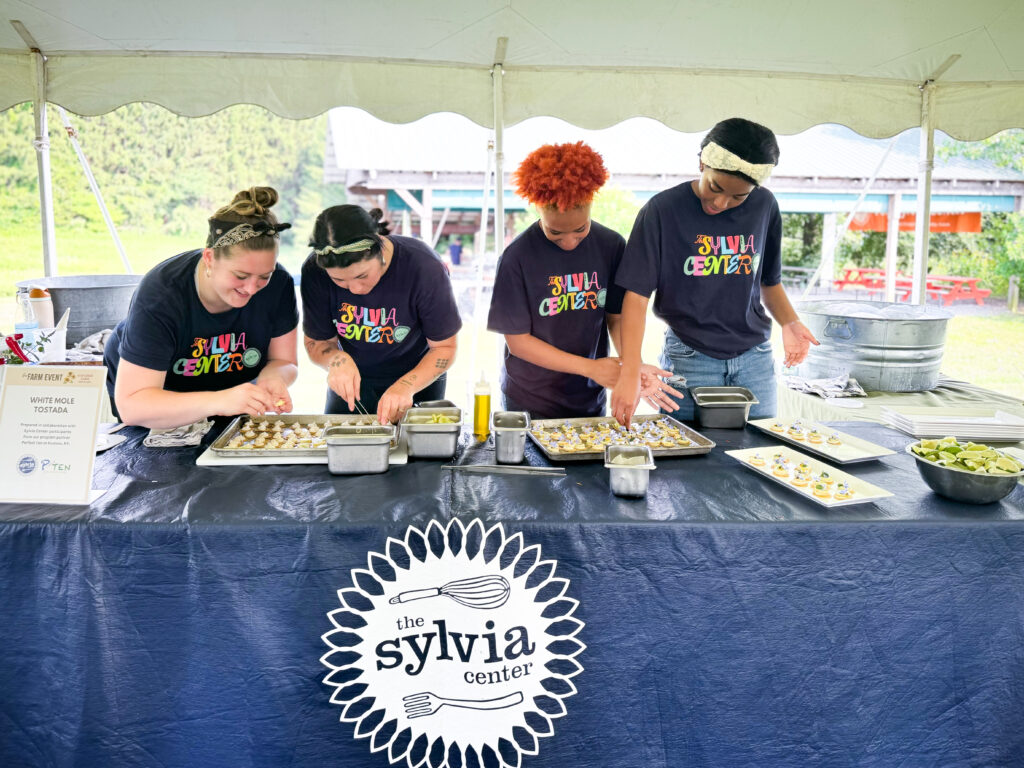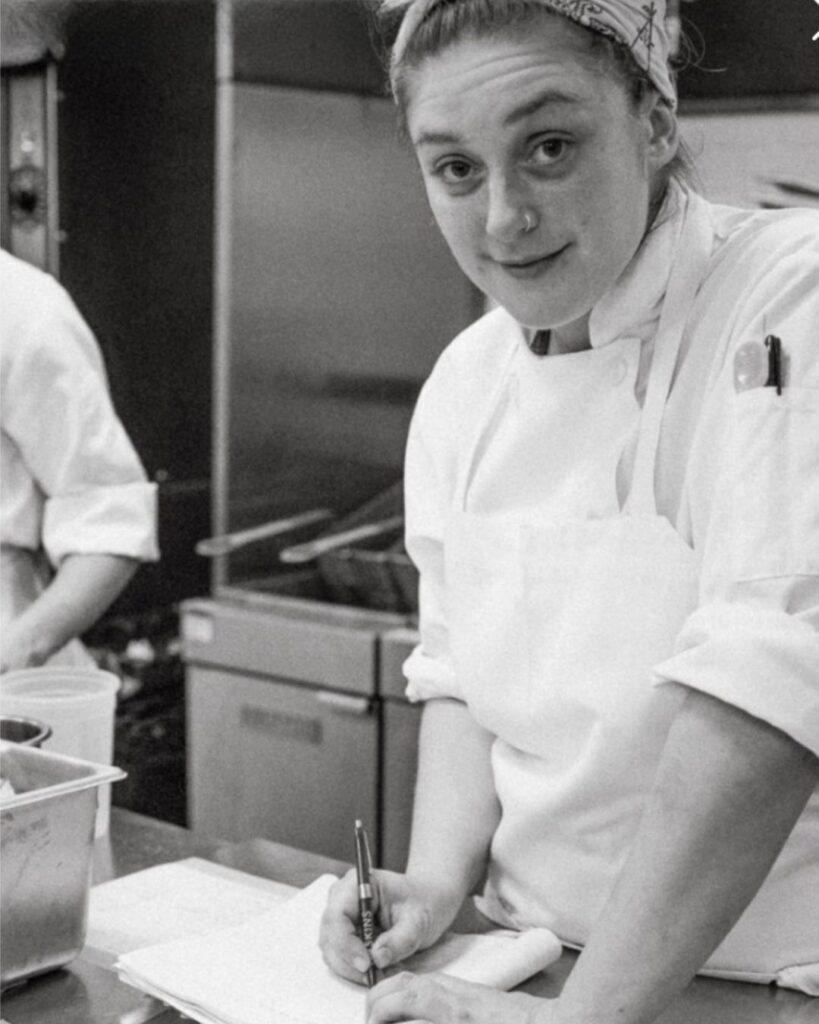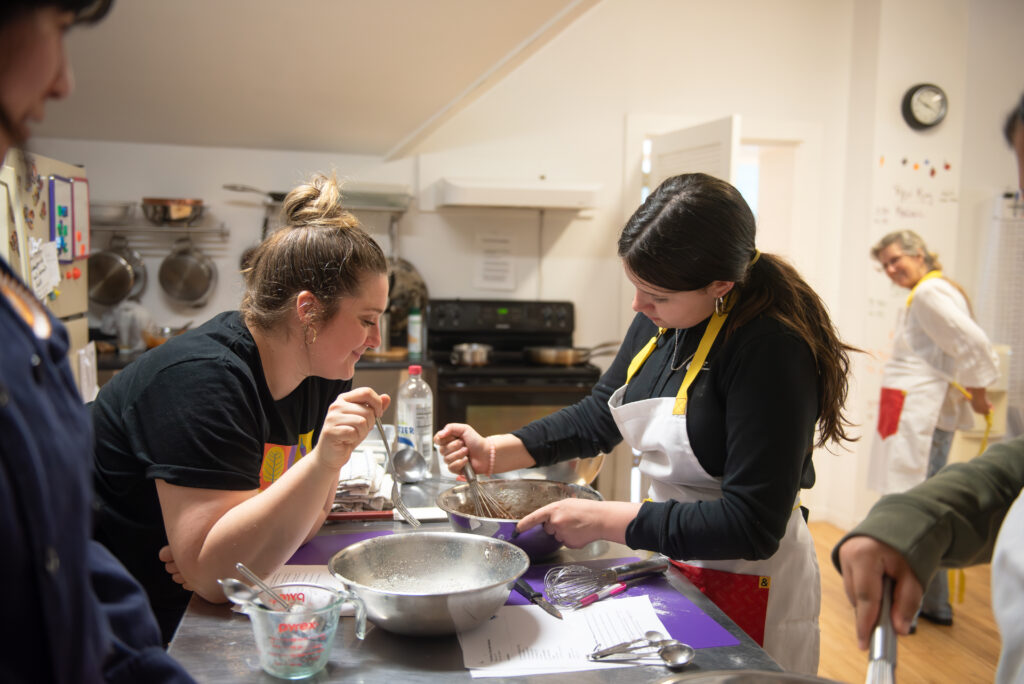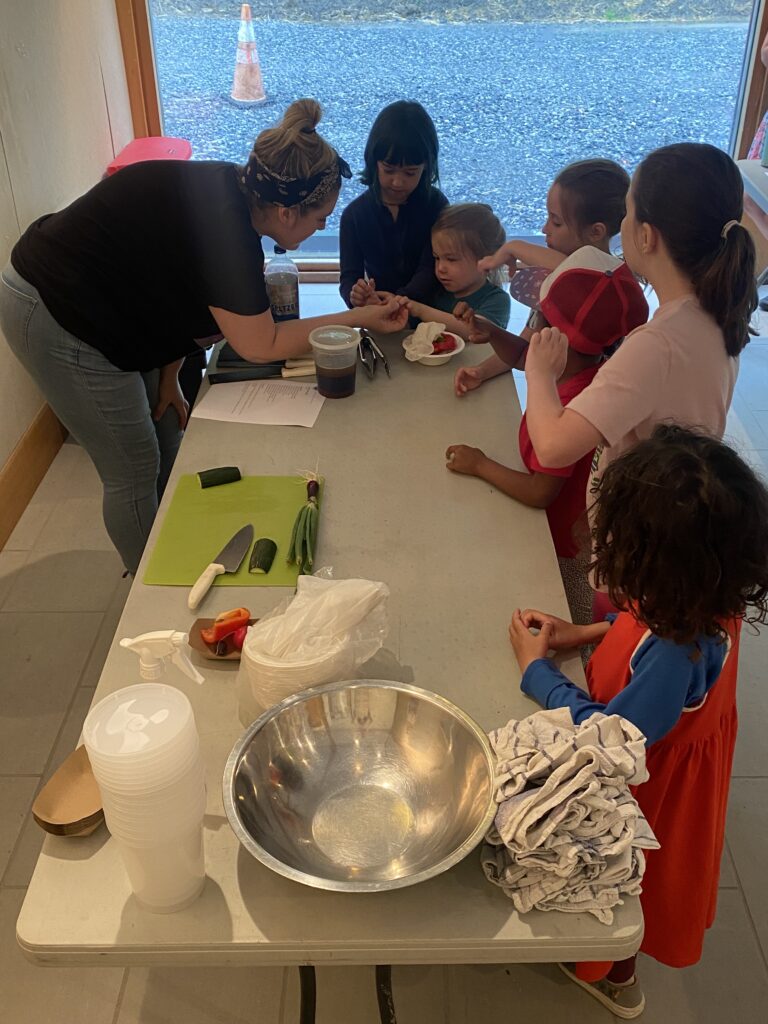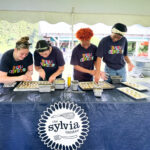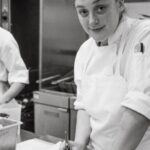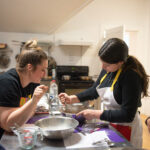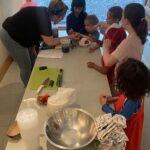By the time I learned to cook, tasting new foods had become an act of survival. I grew up in chaos. We moved houses and changed schools often, and home life was fraught. Like everything else, food was unpredictable—sometimes scarce, sometimes scary, often stressful. I was a fearful eater and devout vegetarian, wary of anything new, troubled by textures, anxious about people watching me eat. Years later, a diagnosis of neurodivergence and complex PTSD helped me see what was really at play here: an absence of safety. My mum was also a terrible cook, so food avoidance was baked in early.
From Survival Mode to the Kitchen
Then, at 16, I was diagnosed with celiac disease, after almost a decade of hospitalizations and mysterious symptoms—migraines, rashes, debilitating gut and joint pain—that kept me out of school for months. Soon after, I was diagnosed with polycystic ovarian syndrome, later followed by chronic fatigue. There were no quick medical fixes—so I started to heal myself through food. My diet was poor, and healing meant relearning everything—even eating meat again, which was terrifying. I spent years just trying new things. Tasting became a way to listen to my body again—to understand it, to care for it. To care for myself.
And it ultimately led me into the culinary world. Over the years I became a recipe developer, food journalist, and eventually a chef, creating dishes that balanced flavor and nourishment. Food became my language for resilience.
It’s why I feel so connected to The Sylvia Center’s work. I know firsthand that tasting isn’t just a step in a recipe—it’s a radical act of curiosity and courage. It’s the moment where you decide to trust yourself enough to try.
The students who join The Sylvia Center classrooms arrive carrying more than just backpacks. Many have experienced food insecurity, trauma, or sensory challenges. Others simply haven’t had the opportunity to try a range of foods, or to talk freely about what they taste and feel. I know firsthand that these lived experiences can lead to fear, rigidity, or shut-down responses. That’s why creating a safe, low-stakes classroom environment rooted in curiosity, consent, and exploration is so powerful.
Building Trust, One Bite at a Time
During our recent Educator professional development session, we explored the deeper impact of tasting in the classroom. When we teach kids how to notice and describe what they’re experiencing—What does this remind you of? Where do you feel the spice?—we’re not just building flavor vocabulary. We’re supporting self-awareness, confidence, and cultural understanding. Students learn to feel safe saying what they think—and to listen when someone else feels differently.
We use sensory word banks and reframing prompts to help move from “Ew, gross!” to “This is creamy and tangy—and I’m not sure I like that yet.” It sounds simple, but it’s transformative. It turns fear into curiosity, and curiosity into confidence. For neurodivergent students and those navigating trauma, like me, it’s a way to reclaim agency and voice.
And the impact goes beyond the table. Research shows that repeated tasting experiences in childhood lead to healthier eating habits later in life. Exposure builds familiarity, familiarity builds confidence—and confident kids make more thoughtful food choices as they grow.
These moments may seem small, but they matter deeply. When students are given the chance to taste, reflect, and speak for themselves, they’re not just learning about food. They’re learning to value their own voice—and to care for themselves. For me, tasting helped to rebuild my relationship with food—and with myself. Now, I get to help create the same experience for our students: a chance to taste, to explore, and to grow.
At The Sylvia Center, tasting is more than trying something new. It’s the start of a journey. It’s turning one small bite into something that can last a lifetime.
Here’s to the small bites that change everything. Until next time, taste bravely.
Annette –
Annette joined The Sylvia Center as an Educator in early 2023, and moved into the Culinary Communications Coordinator role in May this year. A diehard vegetable champion, wizard baker, and food science nerd, she’s passionate about the transformational power of food. Learn more about her here!

